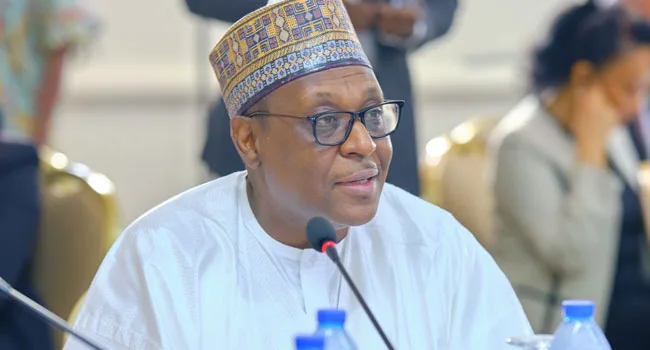The industrial action embarked upon by the National Association of Nigerian Nurses and Midwives (NANNM) has been suspended following agreements reached with the Federal Government, Minister of Health, Prof. Ali Pate, announced on Friday.
Speaking to journalists after a closed-door meeting in Abuja, Pate confirmed that the union agreed to suspend the warning strike after negotiations with senior government officials.
“The strike has been called off,” Pate said. “We had constructive dialogue with the leadership of the association, and we are pleased that progress has been made.”
However, leaders of the union declined to speak to the press following the meeting, offering no public comment on the terms of the agreement.
The nurses had commenced a nationwide warning strike on July 29, 2025, in protest over the government’s failure to address a 15-day ultimatum issued on July 14. The industrial action affected public health institutions across the country and was initially scheduled to continue until August 5.
The strike stemmed from longstanding grievances over poor working conditions, inadequate welfare provisions, and the government’s perceived lack of engagement with the union.
During the strike period, NANNM’s National Chairman, Morakinyo Rilwan, accused the government of failing to respond meaningfully within the negotiation window.
“As far as we are concerned, there has been no communication from the government to this moment. That is why we are saying the strike is going on, and nothing is stopping it,” Rilwan said during the early days of the strike. “Even if the government calls today or tomorrow, it won’t stop the strike. They had enough time.”
The union had demanded an upward review of shift allowances, adjustment of uniform allowances, the implementation of a separate salary structure for nurses, an increase in core duty allowances, mass recruitment of nurses across federal institutions, and the creation of a dedicated nursing department within the Federal Ministry of Health.
Rilwan previously emphasized that the decision to embark on industrial action was not made lightly, but rather reflected deep frustration among rank-and-file members.
“The decision was not unilaterally taken by the leadership. It came from the overwhelming dissatisfaction of our members who have endured years of neglect,” he stated.
While details of the agreement reached on Friday have not yet been disclosed, the suspension of the strike is expected to bring relief to patients and staff at public healthcare facilities nationwide.


